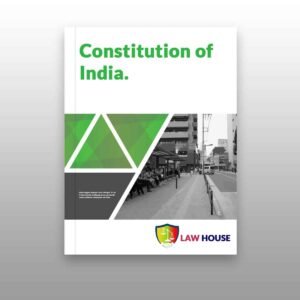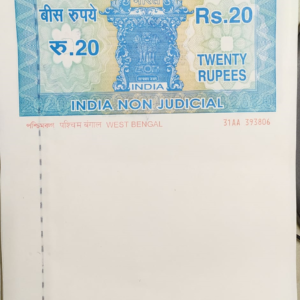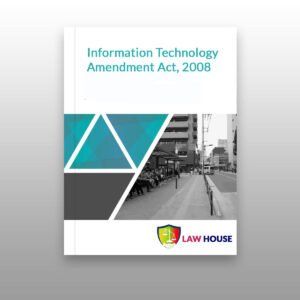There are several laws in India which are specifically enacted to protect the interest of the employees. A developed and dedicated workforce is a pre-requisite for any organisation to grow. Here a few rights of employees starting from “ right to take leave” to “receiving gratuity benefits” that every employee must know-
Written Agreement
An employer is required to provide a written employment before you commence work. An employment agreement is a legal document which stipulates the terms and conditions of the agreement. It states the rights and duties of the employee and the employer. It gives both parties security and protection. When you sign an agreement it provides a sense of security to both the parties. An employment agreement also prevents potential disputes between the employer and the employee. You can seek professional assistance before you sign or accept the employment agreement. Some of the important clauses of the written agreement are-
- Compensation
- Roles and responsibilities
- Working hours
- Job Designation
- Non-disclosure of confidential information
- Dispute resolution method

Know the Complete Step by Step guide of Employment Laws including Overtime calculation and Night Duty
Right to take a leave
In most cases, during the tenure of employment, an employee is given the following types of leaves-
- Casual leave- An employee is given certain causal leaves in a year to take care of any urgent or emergency family matter.
- Sick leave- These are the leaves that an employee is entitled to take when he or she is ill.
- Earned leaves- These are those leaves that are planned for in advance.
- Other leaves- Besides the above-mentioned leaves there are certain leaves that could be paid or unpaid and are provided at the discretion of the employer.
Related Post: Are you working overtime? Know these Laws
Protection from Sexual Harassment at Workplace
It is the prime concern of the employer to ensure that his/her employees are protected while at work. Aggrieved women can seek remedy under the Sexual Harassment of Women at Workplace (Prevention, Prohibition, and Redressal) Act 2013. The company’s policy must clearly state what constitutes sexual harassment and stipulate the online grievance mechanism. As per the law, in the case of ten or more employees, the organisation should have an internal complaint committee. The committee should include a senior woman as a member and two other employees as a member.
Related Post: Laws on Sexual Harassment at workplace in India

Right to receive Gratuity
Gratuity is the statutory right of an employee which is given to those who have completed five years of continuous service with the organisation. It cannot be denied on the ground that the employer is providing for provident fund and pension benefits. The employee gets this benefit of gratuity on completion of employment which could be either on death, retirement or termination. It is a defined retirement benefit plan which is calculated on the basis of last drawn salary. It is an important form of social security and it is considered as the gratitude of the employer. The amount of gratuity increases with the amount of liability and tenure of employment.(s)
Right to receive pay for public holidays
India observes three public holidays Republic Day (26 January), Independence Day (15 August) and Gandhi Jayanti (2 October). It is compulsory to grant leave to all employees on all three days irrespective of the establishment.
Equal pay for men and women
Our constitution mandates equal pay for equal work for both men and women under Article 39(d). Equal pay also includes all the other benefits and allowances. The Equal Remuneration Act, 1976 obligates the employer to pay equally for equal work.

Do you Know Its your Right to get equal Remuneration. Know How to file a complaint under Equal Remuneration Act, 1976?
Right of employee on probation
Usually, the probation period for employees is 6 months. The employer can extend it maximum for three months. The probation period cannot exceed for more than two years.
Right to get insurance for employee
As per the Employee State Insurance Act 1948, in case of any kind of mishappening during the course of employment.
Maternity/Paternity benefit for employee
Every female employee has the right to get 26 weeks of paid maternity and creche facility. Maternity benefit has been specifically enacted to safeguard the interest of the pregnant women at the workplace. The prenatal leave can also be availed for eight weeks. The law also provides leave for 12 weeks on adoption of a child less than three months old.

Lear How to file a Complaint? Procedure to seek remedy for any contravention under Maternity Benefit Act, 1961.
Non-compliance with any of these obligations entails penalty and even prosecution in some cases.
Related Books:


















![Honey trap in Cybercrime: A to Z guide Exploring Honey Trap in Cyberspace [With Video]](https://www.lawhousekolkata.com/wp-content/uploads/Post-Images/Honey-Trap-300x169.jpg)







































![Employees-State-Insurance-Act-1948 | Law House: The #1 Notary in Kolkata | Make Notary Online Employees State Insurance Act, 1948 Free Book Download [PDF]](https://www.lawhousekolkata.com/wp-content/uploads/Law_Books_Image/Employees-State-Insurance-Act-1948-1024x1024.jpg)




